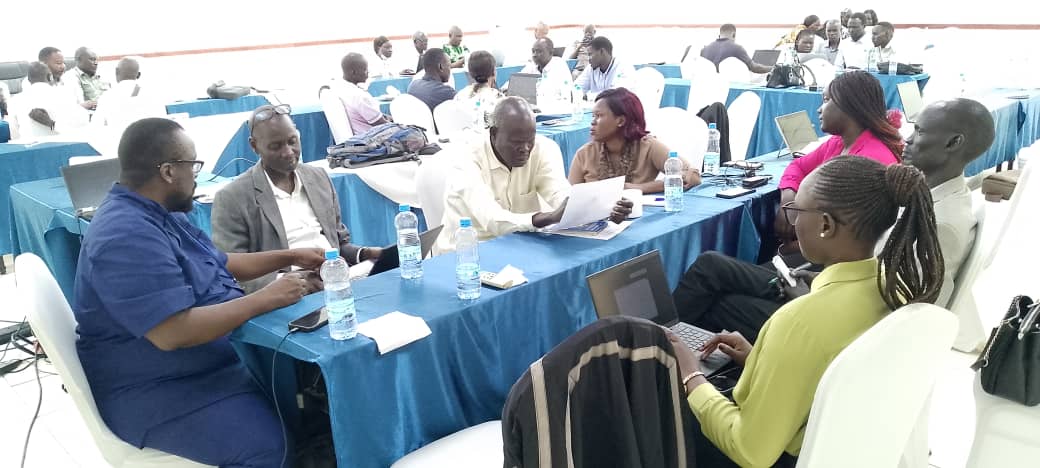
As
the "Building Skills for Human Capital Development in South Sudan
Project" reaches its halfway mark since the financing agreement was signed,
a comprehensive re-orientation workshop convened for Directors General, PIU
staff, and contracted specialists. The workshop, aimed at revisiting
foundational project policies, procedures, and systems, also set the stage for
developing actionable work plans and enhancing collaboration over the next
year.
The Re-orientation workshop was held at Juba Grand Hotel from 27th
to 29th 2025, the workshop gathered key stakeholders to reflect on
project achievements, challenges, and strategic directions. With the goal of
fostering effective implementation, participants revisited the knowledge World Bank
PIU established during the initial start-up workshop, ensuring everyone was
aligned with the project’s objectives and methodologies. In addition, the
attendees developed work plans ensuring a robust framework for the project’s
future phases.
The Acting Undersecretary in the National Ministry of General Education and
Instruction, John Sebit emphasized the importance of this workshop: "This
re-orientation is crucial. It allows us to re-align our strategies and enhance
our coordination as we work towards our shared goal of improving education and
skills development in South Sudan." Similarly, Mr. Thadeo Kuntembwe, the project
coordinator, noted that "the collaborative efforts in this workshop will
undoubtedly help us navigate the complexities of project implementation and
ensure accountability in our roles."
While the workshop underscored significant progress, it also acknowledged
existing challenges, including resource constraints and the need for continual
capacity building among staff. Participants were encouraged to proactively
engage in discussions, providing a platform for addressing these issues and
brainstorming innovative solutions.
The re-orientation workshop stands as a pivotal moment in reinforcing the
commitment to human capital development in South Sudan. By revisiting vital
project frameworks and collaboratively developing future work plans, key
stakeholders are poised to enhance the impact of this World Bank-financed
initiative. As the project moves forward, consistent engagement and adherence
to established guidelines will be essential for realizing the ambitious goals
set forth for the nation’s educational landscape.
Comment
Leave a comment